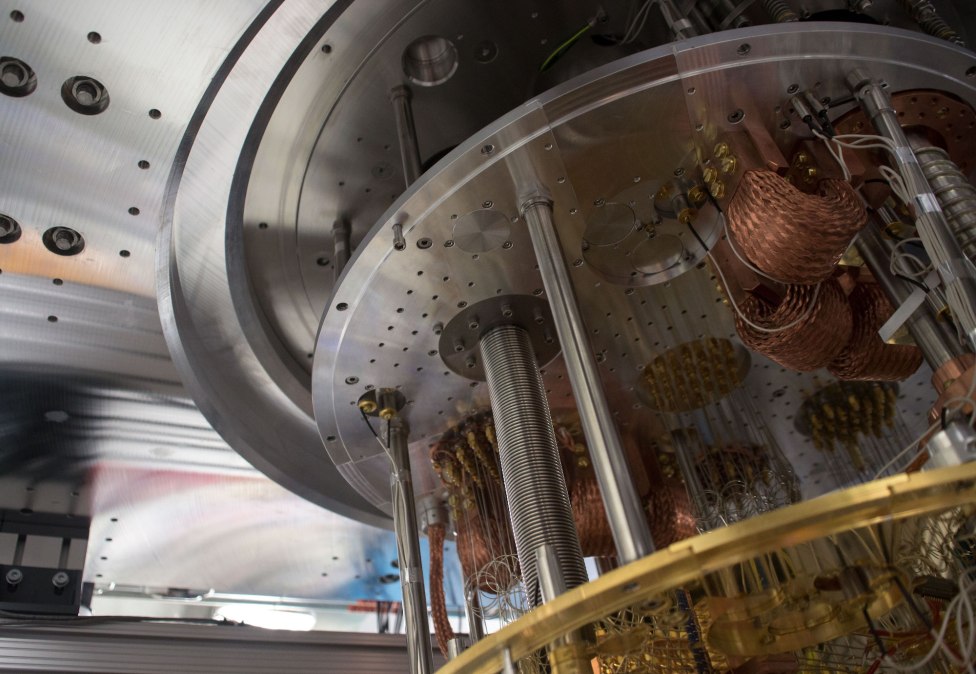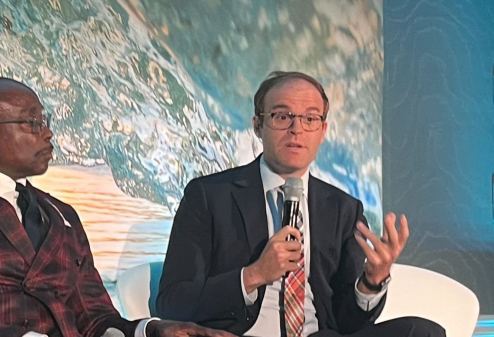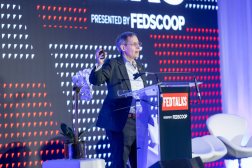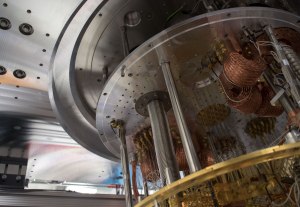What will it take to get quantum computers? Hardware is just the beginning, experts tell Congress

As quantum computing hardware edges closer to practical use, the experts are calling upon Congress to pay more attention not only the programs that will be needed to run it, but also the people capable of writing that software.
Hoping to bridge the gap between the speculative future of the technology and the crucial foundation needed to develop it, a group of industry and university academics told a House panel Friday that talented people and international cooperation will be crucial parts of the answer.
One thing is clear: Although lawmakers have made quantum computing a hot topic in Washington, Congress will need some more expertise of its own. Members of the House Energy and Commerce Committee readily admitted Friday to not understanding the technology, which moves beyond the bits of traditional computing and instead relies on activity at the quantum scale.
More engineers
While federal agencies like the National Science Foundation and the Department of Energy currently have quantum research grants, University of Chicago professor Diana Franklin said that past cuts in academic funding have put the nation a decade behind wherever it could have been in developing a robust quantum computer science workforce.
Now with outside nations like China spending big on quantum research, she said more grants have to be directed to establishing quantum computing science programs at universities to fill a dearth of talent needed to solve the technology’s present problems.
“One gap is in software development,” she said. “Deep expertise is necessary to figure out how to modify software that works in one specific context to another, much more so in quantum computing than in traditional computing.”
Franklin added that more research talent is desperately needed to fill interdisciplinary design teams that will solve gaps in quantum software development, which is currently very specialized, as well as its interaction with quantum hardware.
That talent will come from university research funding expressly directed to quantum computer science programs, Franklin said.
“If this were furniture construction, what we have right now is piles of wood, screws and nails. Instead, what we want in the future are non-experts to go to quantum IKEA, get a pre-fab kit and easily modify it for their application. This exists for classical computing, but not quantum computing.”
International cooperation
Michael Brett, CEO of QxBranch, a data analytics company specializing in quantum technology and machine learning, said that one way to speed the development is for the U.S. to collaborate on research with friendly countries that are also investing big in the technology.
“There’s valuable scientific research in engineering development that is being made elsewhere, including in key allies such as Australia, the United Kingdom, Canada, Japan and Singapore,” he said. “We need to be able to access the best talent and technology globally and this means partnering.”
Closer to home, University of Maryland professor Christopher Monroe also advocated for his plan to develop a National Quantum Initiative composed of a network of quantum innovation laboratories at universities or federal agencies working in collaboration with the private sector to develop breakthroughs in a centers of excellence model.
“The point here is to foster a new generation of engineers in that particular technology,” he said.
More software to plug the gaps
While some hardware exists today, Franklin said its often not reliable enough to consistently run the algorithms crafted to solve problems with quantum’s advanced computing power. That problem could be greatly aided by programs that can bridge the divide.
“There’s software that needs to be created that makes it so algorithms that assume perfect hardware can be modified to use this near-term hardware so that we don’t have to wait as long,” she said.
And when it comes to the fear of a quantum computer strong enough to crack modern encryption protocols, Monroe said though it’s difficult to predict when one will emerge, the U.S. shouldn’t wait to make its protections quantum-safe.
“You don’t want a quantum computer just to break messages, you want to know when one exists, that impacts how you encrypt now,” she said. “We’re talking political timescales. So if a computer exists in 30 years, that could impact how you encrypt things now. So you may want to be ahead of the game and change encryptions standards based on when a quantum computer will exist.”
For more on quantum computing’s potential impact, check out FedScoop’s report on Emerging Technologies.





